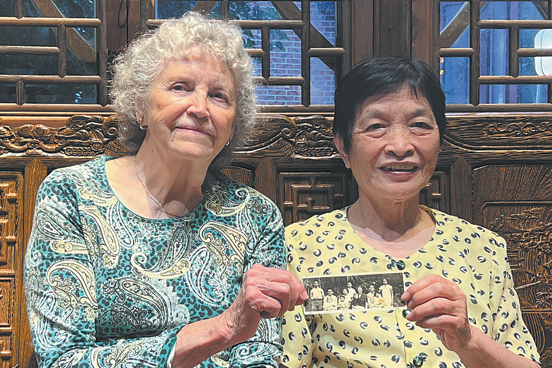First students from BRI countries graduate from CUG
chinadaily.com.cn | Updated: 2018-07-17 11:24

99 international students from countries involved in the Belt and Road Initiative such as Pakistan, Vietnam and Laos graduated from China University of Geosciences, Wuhan in Hubei province, Changjiang Daily reported.
These international students were the first graduates since CUG established the Silk Road Institute of the International Education College in 2015. With subjects including geology, minerals, energy, environment and space
science, CUG built a platform for high-end education training and an interconnectivity platform to cultivate talent pools.
Senebouttalath Vongpasith from Laos has studied at CUG for seven years. He said he liked China very much for its culture. He learned more specialized knowledge during his study in CUG, and would continue to work at the Bureau of Geology and Mineral Exploration in Laos after graduation to make contributions to Laos' development.
Aiming at the talent needs and shortcomings of Belt and Road Initiative countries — resource management and the environment — CUG has established a close-knit discipline group and talent training system in its educational model.
A student with the Chinese name Ouyang Hongfei from East Timor said infrastructure construction is extremely imperfect, and construction funds are also very scarce there. That is the reason he chose to study civil engineering. Ouyang also experienced Chinese culture by becoming a volunteer teacher.
Tariq Farheen, a health science major student from Pakistan, is proud to study at CUG, because she found friendship and care here. She hopes to work at the Ministry of Health in her country to take responsibility for improving people's health.
At present, China University of Geosciences has established a comprehensive system for sustainable overseas education in China and a scientific training and management system. The number of international students in the school has reached over 1,000 per year from 109 countries. The proportion of graduate students is up to 88.8 percent, among which students from Belt and Road Initiative countries account for 70.2 percent.
Su Hongtao, deputy dean of the International Education College, said in the future the university will continue to focus on key areas of education, and develop majors conducive to the needs of BRI countries. The university will boost student exchanges and cooperation between Chinese and foreign students establish a good international reputation and strengthen Chinese education.
























